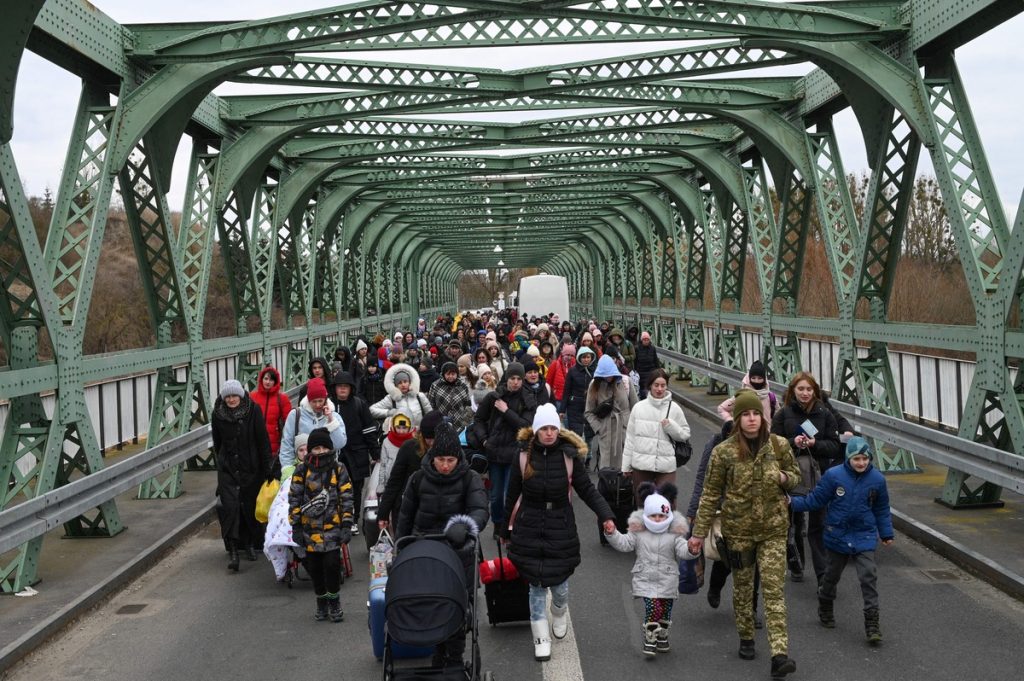In the aftermath of Russia’s invasion of Ukraine in 2022, the physical scars of the war are evident in the destruction and violence that has left many towns in shambles. However, the mental toll on Ukrainians, both within the country and beyond, is a less visible but equally significant impact of the ongoing conflict. Nearly 10 million Ukrainians are believed to be at risk of or living with mental health conditions as a result of the war, prompting a call for increased mental health and psychosocial support services to address the growing demand for assistance.
Professor Mooli Lahad, an experienced trauma expert from Israel, is leading a program aimed at providing ordinary citizens with the tools to help Ukrainians cope with post-traumatic stress disorder (PTSD) and the lasting effects of war. With a shortage of fully qualified professionals available to assist, Lahad’s program focuses on equipping individuals with the skills to offer support to those affected by trauma. The program is designed to pass on knowledge from trainers to trainees, who in turn can share their expertise with others in need.
The efforts to support Ukrainians suffering from the effects of trauma extend beyond the country’s borders, with Poland opening its doors to nearly one million Ukrainian refugees. Beata Zwierzyńska, a volunteer from Poland, founded a group to provide psychological support to Ukrainian refugees experiencing PTSD. Initially providing physical supplies to those who had fled the violence, Beata underwent training with Lahad’s program and gained the skills to identify and address symptoms of trauma in the individuals they were assisting.
Lahad’s program offers a variety of techniques to address PTSD and trauma, including the use of art therapy and playback theater. By reenacting lived experiences, participants can gain control over their narratives and engage in a group process that promotes healing. The program aims to develop more online treatments to reach a wider audience, acknowledging the need for support tailored to different age groups and ensuring a personalized approach to mental health care amidst a challenging environment.
Participants in Lahad’s program, including individuals like Khaleda Naseer, who grew up amid conflict in Afghanistan and now resides in Poland, are equipped with the skills to support others while navigating their own traumatic experiences. As the war in Ukraine continues, ongoing therapy is essential to teach Ukrainians how to cope with repetitive trauma and maintain resilience in the face of ongoing threats. The program emphasizes the importance of passing on skills to empower individuals to address mental health challenges and build a community of support beyond borders.
In response to the mental health crisis in Ukraine, the country’s First Lady, Olena Zelenska, has been advocating for increased awareness and access to mental health services. Initiatives have been launched to address the stigma associated with mental health and bring services closer to those in need. Recognizing the deep need for mental health support, efforts are underway to shift attitudes towards mental health care and offer accessible services to address the mental health challenges faced by Ukrainians and others affected by conflict.


